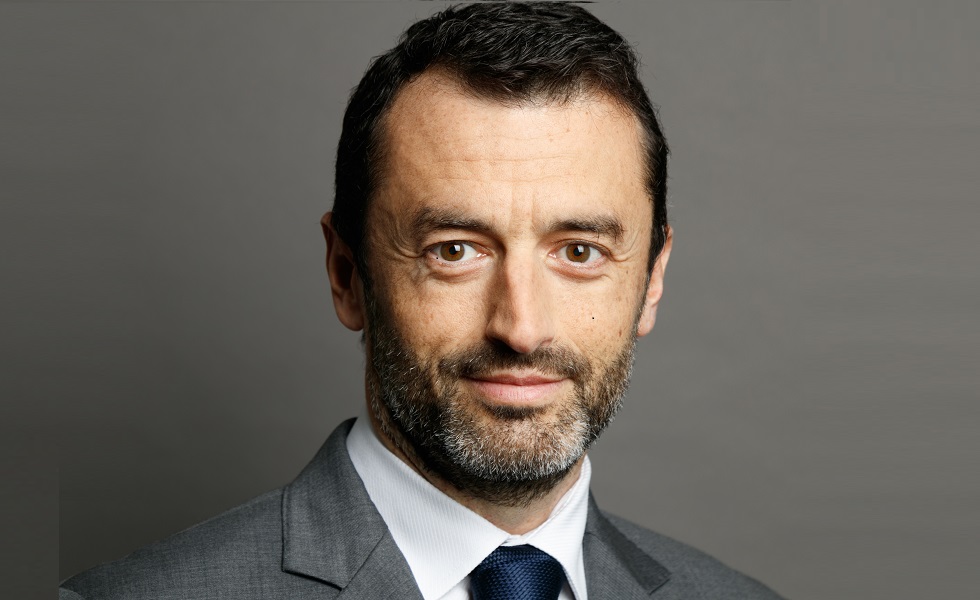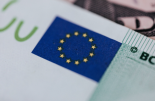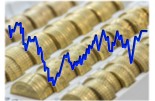Thomas Friedberger: Europe, a major investment opportunity in a deglobalized economy
Thomas Friedberger: Europe, a major investment opportunity in a deglobalized economy

‘The US has been the world leader in the last few decades, but there are reasons for a European comeback’, argues Thomas Friedberger, Deputy Chief Executive Officer of Tikehau Capital. One of these reasons is deglobalization, which can actually work in favor of Europe.
Door Harry Geels
European equities have been lagging in the last decade, especially in relation to US equities. What are the drivers behind this?
‘The political integration of Europe through the EU has had its bumps and pitfalls. Consequently, the euro zone has had several euro crises, including those in 2010 and 2011. While Europe was struggling, some American companies were able to build very strong domestic positions thanks to a large home market which benefited from a well-functioning internal market, an optimal currency area, transparent market data and one common language. It’s much easier for a company in New York State to do business in California than for a Dutch company to do business in Spain.
Looking at it with a long perspective, the US stock market has outperformed most other stock markets in the world. Their ROE has been over 14% long term, while Europe has achieved no more than 11%. This can be partly explained by the presence of activist investors and short sellers that can force American companies to gain in efficiency much quicker than can be done in Europe.’
Will European equity come back and why?
‘Yes, and there are quite a few reasons for it. The private equity markets have shown some good developments here, transforming local companies into European champions. European cities like Amsterdam, Barcelona, Berlin, Paris and Stockholm have become international IT hubs with great infrastructure for start-ups to develop. Europe benefits from a large pool of talents. There are three additional reasons that I call ‘comeback developments’. They are the strengthening effect of the war in Ukraine on EU political collaboration, the growth of sustainable investing where Europe is in the lead globally and Europe will probably gain in competitiveness thanks to energy transition.’
European cities like Amsterdam, Barcelona, Berlin, Paris and Stockholm have become international IT hubs with great infrastructure for start-ups to develop.
Let’s talk about your three ‘comeback developments’ in more detail. First, the war in Ukraine and the strengthening effect it is having on the EU.
‘Yes, we have come to realize that we need to be united in this case. We have taken quite a few joint steps to face it. Of course, Europeans are not agreeing on everything yet, but there are certainly steps in the right direction. We also see right-wing political parties gaining strength in some countries, but at the same time they have been changing their views on the EU for the better. Indeed, some political parties in Europe are getting more conservative and protectionist, but they are not questioning the EU anymore. Certainly, we are not out of the woods yet, but the direction is broadly positive. Who would have thought that the EU would be issuing common bonds?’
Second, Europe’s head start in sustainability. How does that generate financial performance?
‘Sustainability is a long-term trend and Europe is at the forefront. That will translate, sooner or later, into better financial performance as energy transition is also a competitive advantage for companies. Savings thanks to better efficiency of buildings, plants, fleets of vehicles will compensate for the increase in labor costs implied by re-onshoring. Land owned by farmers that emits net CO2 and nitrogen will decrease in value and vice versa. The trend of sustainability will be valuecreating for some and value-destructing for other companies. This will pay out to the benefit of European companies because they lead the sustainability trend. However, other regions, including China and the US, are catching up.’
Third, how does deglobalization help Europe?
‘Deglobalization is a relatively new trend. International trade as a proportion of global GDP peaked in 2008. This trend was strengthened during the corona crisis with its supply chain disruptions. Also, the war in Ukraine with its resulting energy crisis has strengthened the belief that Europe should be more self-reliant and self-sufficient, and that we should build more local ecosystems. Ever since the beginning of the eighties, when a long-term cycle of lower interest rates coincided with the opening up of world markets, big companies have been optimizing their labor and tax costs.
Sustainability is a long-term trend and Europe is at the forefront. That will translate, sooner or later, into better financial performance.
For decades there has been a big tailwind corporate profit generation. That’s changing now with higher interest rates and less ability to optimize production costs, taxes and capital buffers companies operate with. This has probably also brought the world into an environment that has structurally lower economic growth. More and more companies are becoming more sustainable, trying to be closer to their domestic customers, taking care of the environment and paying taxes in the countries where they do business. We have seen huge increases of investments in energy transition and in other important sectors like cybersecurity. European companies are helped by a highly skilled workforce and this makes them stronger and more resilient.’
What is your investment strategy in Europe?
‘The current main crises are bringing valuations down and create a lot of dispersion. We believe that the companies with the best management and sustainable strategies will outperform in the coming years. Although, as I’ve said, we also believe that economic growth will go down. Within this subdued growth story there will be high-growth stories in megatrends, for example in energy transition, cybersecurity, and digitalization of industrial processes. Sustainable, thematic, private equity is in a particularly good situation.
We also especially look at value investing. The lack of liquidity in some markets like high yield credit or leveraged loans creates opportunities. There are also interesting opportunities in secondaries because there are forced sellers in the current market environment. Our strategy focuses on both growth and value. We have dry powder to deploy and believe a disciplined investment approach will create a lot of value in the coming months.’
|
SUMMARY European equities have been lagging in relation to US equities, but there are developments that may lead to a comeback. The war in Ukraine has strengthened the need for EU political collaboration. Europe’s head start in sustainability will translate, sooner or later, into better financial performance. Deglobalization trends have strengthened the belief that Europe should be more selfreliant and self-sufficient. Tikehau Capital uses a disciplined investment approach focusing on both growth and value. |










